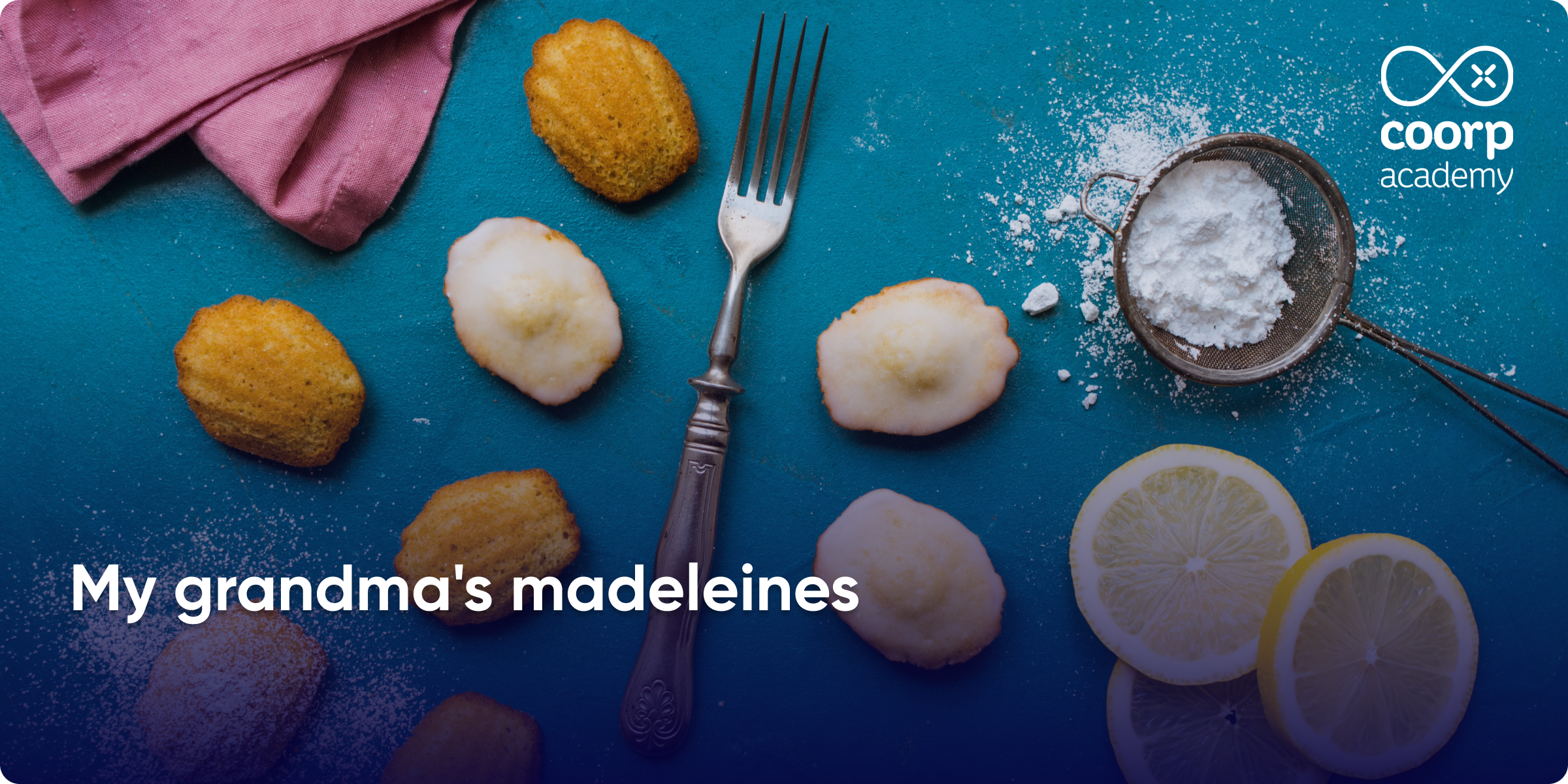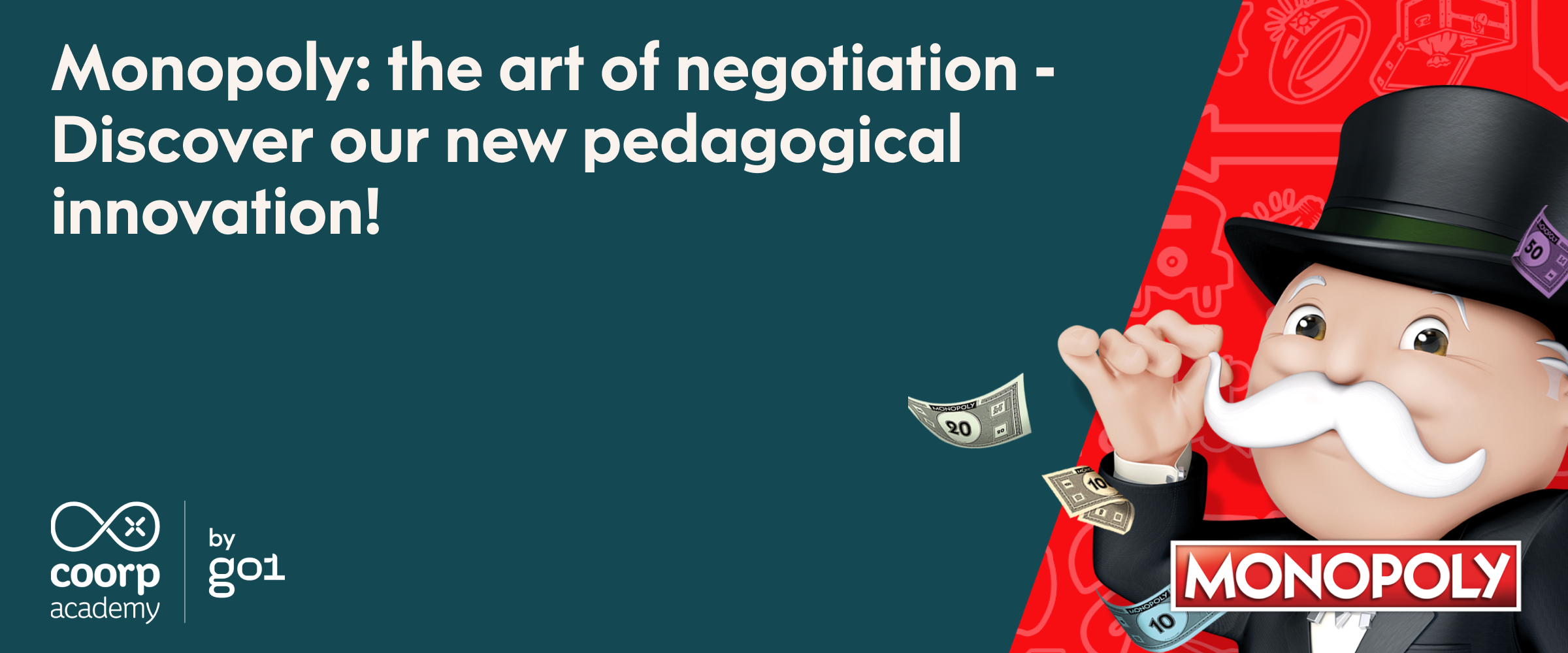My grandma’s madeleines
Learning Innovation

Sunday, 5:38 pm, I think of my grandmother’s madeleines. Determined to relive that emotion I feel at the first bite, I decide to cook. Without even thinking, the ingredients are already out on my work surface, from the eggs to the secret ingredient that I have never forgotten (and that I may reveal at the end of this article).
Some actions become mechanisms. By repeating a gesture, or by activating all our senses, we are able to learn much more efficiently. And it is by breaking the eggs in the bowl that I remember repeating this gesture when I was learning at my grandmother’s side how to make the madeleines that I loved so much.
The reason I remember it so well is precisely because I was able to learn while experimenting. I was active in my learning, I learnt the steps of the recipe, only to remember it 10 years later, without even realising it. And it’s not surprising, according to a lot of research, being active in your learning is one of the pillars of information retention.
This pedagogical approach is essential today, in a world where information is overwhelming us and where learners’ attention is increasingly selective. Thus, learning by being active, by participating, by mobilising one’s knowledge, would be more effective than passive learning, where the learner does not act or take any initiative. Thanks to technology and changing needs, training is becoming more diverse and offers more and more options for engaging learners, who are also dependent on this technology.
La pédagogie active peut se traduire par des cours sous forme de quiz, comme c’est le cas sur la plateforme Coorpacademy, dans le but de mobiliser les connaissances des apprenants en amont de la leçon, et de les faire interagir avec le contenu du cours. Si les quizz mobilisent l’attention des apprenants et permet d’ancrer les connaissances, les cours dont l’apprenant est le héros sont encore plus interactifs. En effet, les formats de cours adaptive – tel que le cours Le dilemme du prisonnier : coopérer ou tricher ? – où l’apprenant met concrètement en pratique les concepts vus dans la leçon dans un environnement fictif ou de “bureau”. Cette approche plus concrète permet d’appréhender les concepts de la leçon plus facilement, et de favoriser la rétention d’informations. Enfin, l’un des derniers contenus en date dans lequel les apprenants sont actifs et acteurs de leur apprentissage est l’enquête pédagogique : Cluedo ! Dans ce format inspiré du jeu mythique, les apprenants explorent le manoir Tudor et interroge les suspects pour élucider le meurtre de Monsieur Lenoir.
Active pedagogy can take the form of courses in the form of quizzes, as is the case on the Coorpacademy platform, with the aim of mobilising the learners’ knowledge before the lesson and getting them to interact with the course content. If quizzes mobilise the attention of learners and enable knowledge to be anchored, courses in which the learner is the hero are even more interactive. Indeed, adaptive course formats – such as the Prisoner’s Dilemma: Cooperate or Cheat? – where the learner puts into practice the concepts seen in the lesson in a fictional or “office” environment. This more concrete approach makes it easier to grasp the concepts in the lesson and encourages retention of information. Finally, one of the latest contents in which learners are active and involved in their learning is the educational investigation: Cluedo! In this format inspired by the mythical game, learners explore Tudor Manor and question suspects to solve the murder of Mr Boddy.
Diversifying teaching formats, offering interactive and fun content, are crucial to engage learners and stimulate their motivation. Because one of the key factors for successful learning is above all the motivation of the learners.
In order to cultivate an environment that encourages learning and the development of employees’ skills, it is important to promote active learning methods. This responsibility therefore requires the provision of a variety of pedagogical approaches, adapted to the expectations and needs of the learners.
Indeed, if my grandmother’s recipe for madeleines is still a mechanism, it is also thanks to the environment in which I was invited to learn, to do, to try. I was encouraged to do things. So the first bite was a real reward, which still motivates me to revise this recipe, whose secret ingredient is the desire to learn (and a dash of lemon, but that’s not really a secret since the Marmiton website exists)!


